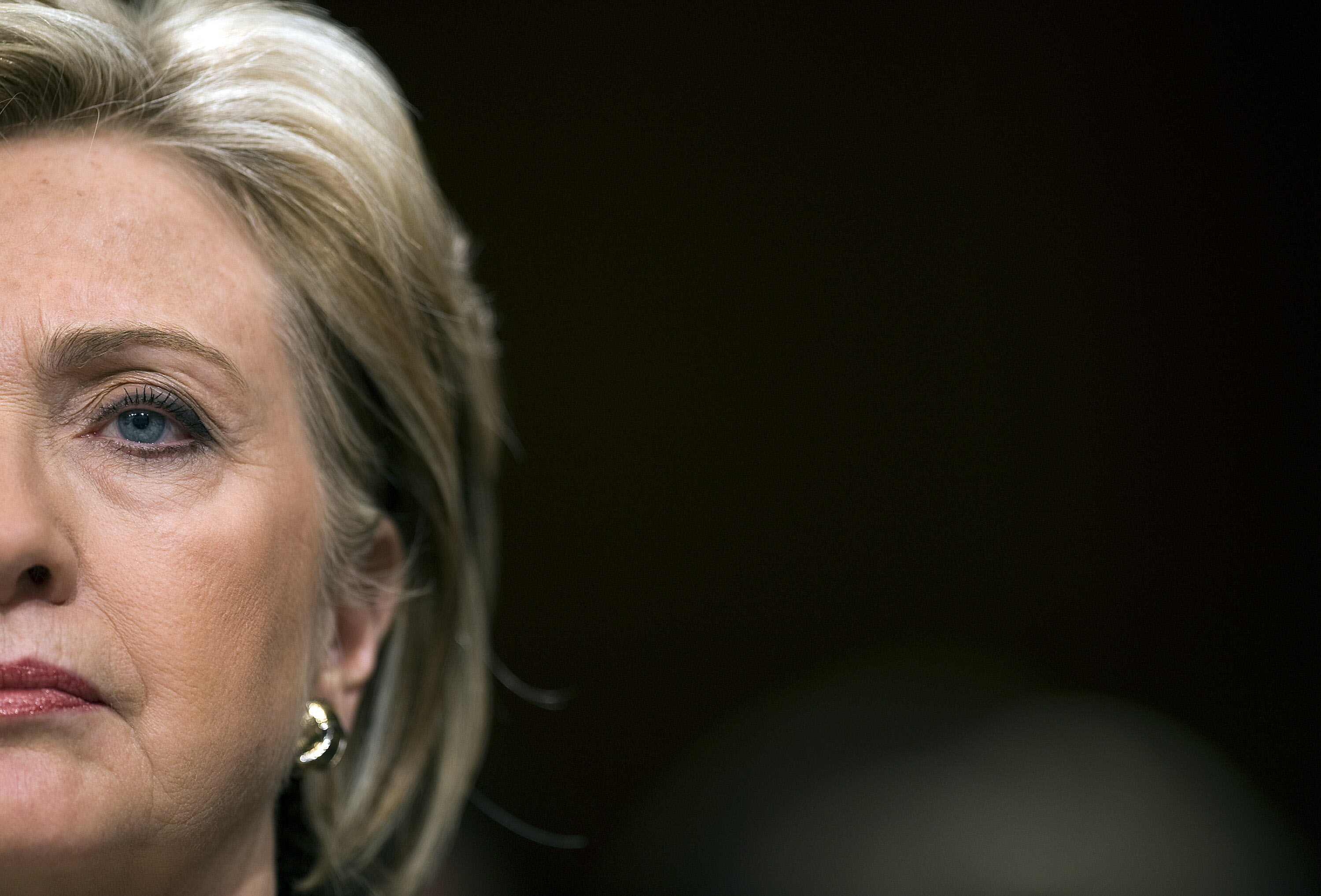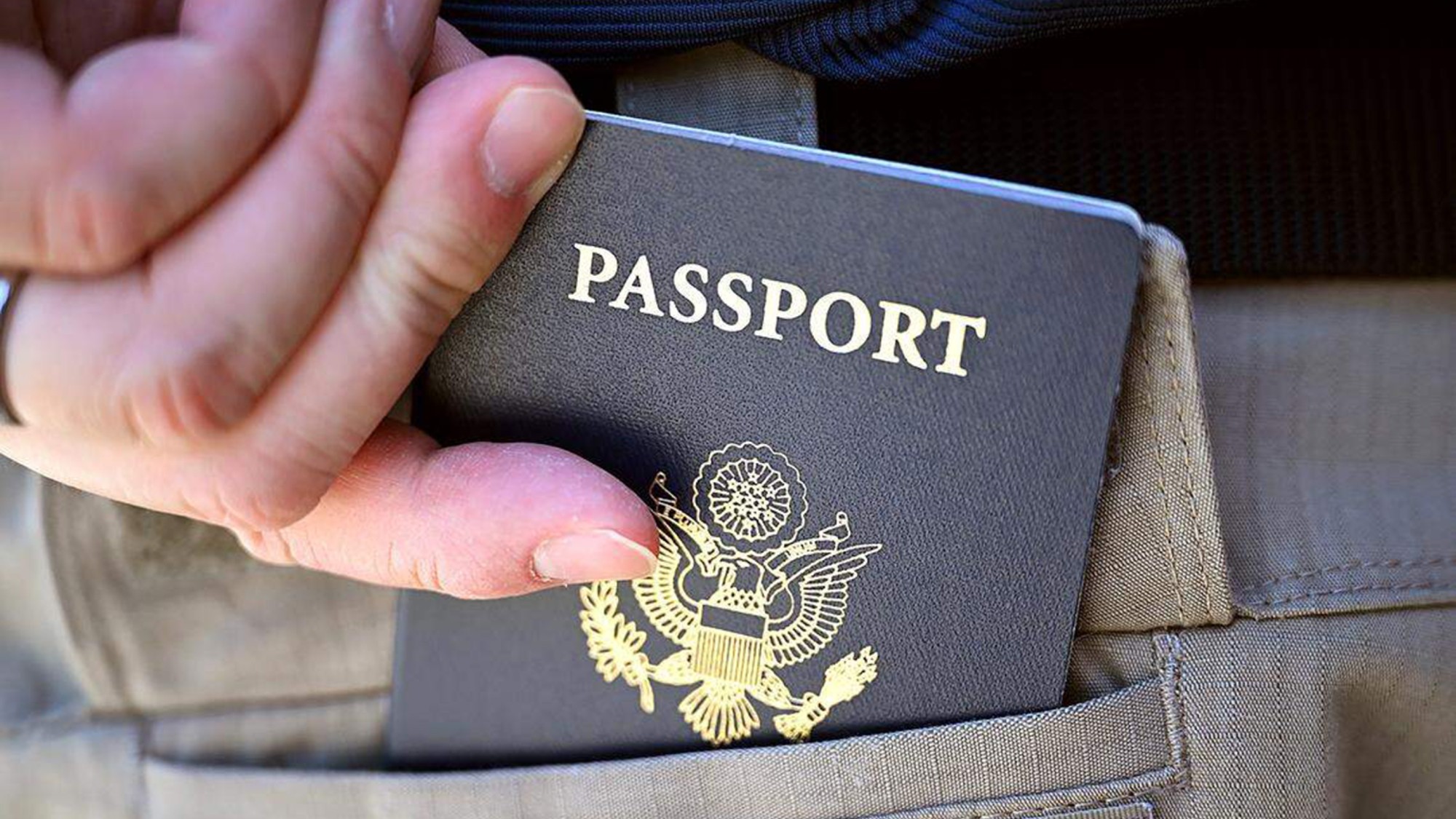Is Hillary Clinton too big to indict?
Hillary Clinton wasn't just "extremely careless" with her emails. She was grossly negligent.


Hillary Clinton is off the hook.
On Tuesday, FBI Director James Comey announced the conclusion of the investigation into the secret email server used by Clinton while she was secretary of state. Clinton repeatedly lied to the public about its use, especially when it came to the transmission of classified information. She was "extremely careless," in Comey's words. And yet, the FBI has chosen not to press charges.
Clinton sent or received more than 100 emails containing material classified at the time of its transmission through an unsecured and unauthorized system, including seven messages that contained information classified at the highest level. The FBI's investigation also showed that Clinton's actions in implementing an outside system put that information at high risk and no small probability of exposure to "hostile actors." In fact, Comey stated that hostile actors did gain access to others in communication with Clinton on her "private email account," and that Clinton made the risk of intrusion even higher by using her unsecured and unauthorized system "in the territory of sophisticated adversaries."
The Week
Escape your echo chamber. Get the facts behind the news, plus analysis from multiple perspectives.

Sign up for The Week's Free Newsletters
From our morning news briefing to a weekly Good News Newsletter, get the best of The Week delivered directly to your inbox.
From our morning news briefing to a weekly Good News Newsletter, get the best of The Week delivered directly to your inbox.
In all, Comey's statement amounts to a rhetorical indictment of Clinton's ethics and competence. "There is evidence that they were extremely careless in their handling of very sensitive, highly classified information," Comey intoned in an unprecedented televised statement. "[A]ny reasonable person in Secretary Clinton's position, or in the position of those government employees with whom she was corresponding about these matters, should have known that an unclassified system was no place for that conversation."
Unfortunately, the indictment will remain limited to the rhetorical, as Comey announced somewhat paradoxically after this public rebuke. After initially stating that he would refer the matter to the Department of Justice for "a prosecutive decision," Comey then concluded that he would recommend that no charges be filed in connection with the scandal. "Although there is evidence of potential violations of the statutes regarding the handling of classified information," Comey allowed, "our judgment is that no reasonable prosecutor would bring such a case."
The use of the phrase "extremely careless" early in the statement turned out to be a precise calculation. The most significant governing statute in this case is 18 USC 793, which makes the mishandling of sensitive national-security information a felony — regardless of whether the mishandling is intentional, or whether a foreign government succeeded in accessing it. Paragraph (f) sets the bar at "gross negligence," and the penalty at 10 years of prison per count:
f) Whoever, being entrusted with or having lawful possession or control of any document, writing, code book, signal book, sketch, photograph, photographic negative, blueprint, plan, map, model, instrument, appliance, note, or information, relating to the national defense, (1) through gross negligence permits the same to be removed from its proper place of custody or delivered to anyone in violation of his trust, or to be lost, stolen, abstracted, or destroyed, or (2) having knowledge that the same has been illegally removed from its proper place of custody or delivered to anyone in violation of its trust, or lost, or stolen, abstracted, or destroyed, and fails to make prompt report of such loss, theft, abstraction, or destruction to his superior officer—Shall be fined under this title or imprisoned not more than ten years, or both.
Another statute, 18 USC 1924, makes unauthorized retention of classified information a felony as well:
A free daily email with the biggest news stories of the day – and the best features from TheWeek.com
(a) Whoever, being an officer, employee, contractor, or consultant of the United States, and, by virtue of his office, employment, position, or contract, becomes possessed of documents or materials containing classified information of the United States, knowingly removes such documents or materials without authority and with the intent to retain such documents or materials at an unauthorized location shall be fined under this title or imprisoned for not more than one year, or both.
This statute requires an establishment of intent, but the first expressly does not. Congress wrote 18 USC 793 to ensure that the onus fell to those with access to classified information to properly protect it. Comey himself insists that "any reasonable person" in Clinton's position would know not to send classified or even sensitive information relating to national security through an unsecured and unauthorized communications system. Comey somehow intends to distinguish this as "extremely careless" rather than gross negligence, even though protection of that information was an explicit part of Clinton's job as secretary of state and as an officer of the government with a security clearance. That leaves "gross negligence" as a standard beyond definition — and beyond any enforcement at all.
Comey then tried a more passive-aggressive explanation for recommending no charges be brought in the matter. "All the cases prosecuted involved some combination of: clearly intentional and willful mishandling of classified information; or vast quantities of materials exposed in such a way as to support an inference of intentional misconduct; or indications of disloyalty to the United States; or efforts to obstruct justice," Comey argued in making the case that no prosecutor would take the case. However, that oversteps the law enforcement role that the FBI fills. Having established that evidence exists that these statutes have been violated, the FBI should inform Justice of that fact, and have them determine what they will or will not prosecute.
There is plenty of evidence that a similar set of circumstances would result in a prosecution. Consider the extant case of Kristian Saucier, a sailor who unwisely decided to use his cellphone to take a few photographic mementos of his tour of duty on board a submarine. The photographs allegedly include classified systems within the ship. Saucier is not accused of transmitting the photographs, unsecurely or otherwise. Saucier's case didn't involve "vast quantities of materials," exposed or not. Nevertheless, Saucier has been charged under 18 USC 793 (e), and has accepted responsibility for those violations in an agreement with prosecutors.
Saucier did attempt to render his storage of the photographs unusable and inaccessible after suspicion arose. However, there seems to be little difference between Saucier's attempts and the efforts by Clinton's team to "wipe" her server rather than submit it to the State Department when requested — actually, a number of servers, as Comey pointed out. If Saucier's actions amount to obstructing justice, then shouldn't Clinton's?
"Clearly, a double standard [exists]," Saucier's attorney Derrick Hogan told me hours after Comey's statement. "To me, there's really nothing that Mrs. Clinton did that was any different than what Mr. Saucier did." Saucier currently faces 63 to 78 months in prison for the 793(e) violations.
Consider, too, the case of Bryan Nishimura. The Department of Justice prosecuted the Naval reservist for unauthorized possession of classified materials, having downloaded them to his personal electronic devices while serving in Afghanistan. None of Comey's parameters for prosecution applied in this case, and yet the DoJ pressed charges all the way to a conviction last year, resulting in a $7,500 fine and probation for Nishimura.
Nishimura now has a criminal record and cannot get access to classified material for the rest of his life. Saucier faces several years in prison for his personal photographs. Clinton, for her attempts to bypass the Federal Records Act, FOIA actions, and Congressional oversight, faces the real possibility of holding the highest and most powerful elective office in the world.
The only conclusion to draw from this dichotomy is that some Americans are just too big to indict.
Edward Morrissey has been writing about politics since 2003 in his blog, Captain's Quarters, and now writes for HotAir.com. His columns have appeared in the Washington Post, the New York Post, The New York Sun, the Washington Times, and other newspapers. Morrissey has a daily Internet talk show on politics and culture at Hot Air. Since 2004, Morrissey has had a weekend talk radio show in the Minneapolis/St. Paul area and often fills in as a guest on Salem Radio Network's nationally-syndicated shows. He lives in the Twin Cities area of Minnesota with his wife, son and daughter-in-law, and his two granddaughters. Morrissey's new book, GOING RED, will be published by Crown Forum on April 5, 2016.
-
 US citizens are carrying passports amid ICE fears
US citizens are carrying passports amid ICE fearsThe Explainer ‘You do what you have to do to avoid problems,’ one person told The Guardian
-
 All roads to Ukraine-Russia peace run through Donetsk
All roads to Ukraine-Russia peace run through DonetskIN THE SPOTLIGHT Volodymyr Zelenskyy is floating a major concession on one of the thorniest issues in the complex negotiations between Ukraine and Russia
-
 Why is Trump killing off clean energy?
Why is Trump killing off clean energy?Today's Big Question The president halts offshore wind farm construction
-
 Bari Weiss’ ‘60 Minutes’ scandal is about more than one report
Bari Weiss’ ‘60 Minutes’ scandal is about more than one reportIN THE SPOTLIGHT By blocking an approved segment on a controversial prison holding US deportees in El Salvador, the editor-in-chief of CBS News has become the main story
-
 Has Zohran Mamdani shown the Democrats how to win again?
Has Zohran Mamdani shown the Democrats how to win again?Today’s Big Question New York City mayoral election touted as victory for left-wing populists but moderate centrist wins elsewhere present more complex path for Democratic Party
-
 Millions turn out for anti-Trump ‘No Kings’ rallies
Millions turn out for anti-Trump ‘No Kings’ ralliesSpeed Read An estimated 7 million people participated, 2 million more than at the first ‘No Kings’ protest in June
-
 Ghislaine Maxwell: angling for a Trump pardon
Ghislaine Maxwell: angling for a Trump pardonTalking Point Convicted sex trafficker's testimony could shed new light on president's links to Jeffrey Epstein
-
 The last words and final moments of 40 presidents
The last words and final moments of 40 presidentsThe Explainer Some are eloquent quotes worthy of the holders of the highest office in the nation, and others... aren't
-
 The JFK files: the truth at last?
The JFK files: the truth at last?In The Spotlight More than 64,000 previously classified documents relating the 1963 assassination of John F. Kennedy have been released by the Trump administration
-
 'Seriously, not literally': how should the world take Donald Trump?
'Seriously, not literally': how should the world take Donald Trump?Today's big question White House rhetoric and reality look likely to become increasingly blurred
-
 Will Trump's 'madman' strategy pay off?
Will Trump's 'madman' strategy pay off?Today's Big Question Incoming US president likes to seem unpredictable but, this time round, world leaders could be wise to his playbook
